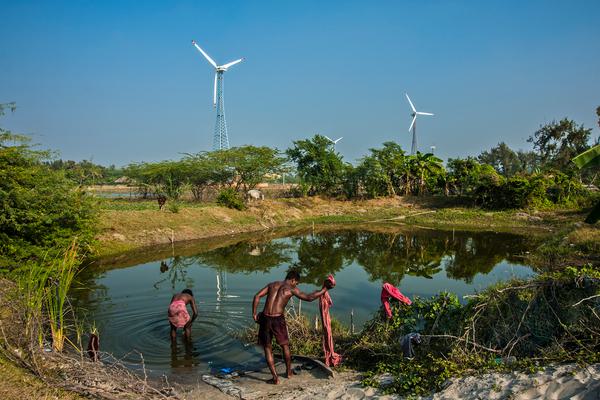The Power of Collective Investor Action to Safeguard Human Rights
26 October 2017

We are living in a time of tremendous upheaval, and also great promise.
From existential threats like the ravages of climate change that threaten public health and global water and food supplies, to an unprecedented migrant and refugee crisis provoking geo-political conflicts and even genocide, there are ‘clear and present dangers’ straining so many communities around the world.
There are ‘clear and present dangers’ straining so many communities around the world.
But in this time of great challenge there are also important solutions and opportunities to respond that are presenting themselves.
The Case for Investor Advocacy
One of them is the establishment of a new initiative, the Investor Alliance for Human Rights, which seeks to harness the collective power of investors in the work to guard against human rights abuses. This Alliance, led by the Interfaith Center on Corporate Responsibility (ICCR), will convene investors from around the world to use their collective influence to advocate for greater justice and to press companies and policy-makers on a range of human rights risks.
The groundwork in establishing the link between corporate practices and human rights risks has already been laid and the case for investor advocacy on these issues is powerful.
The UN Guiding Principles on Business and Human Rights provide a global framework to help companies assess and address human rights risks in their operations and supply chains. While some companies have shown leadership in integrating these principles into their policies and practices, most are still unaware of the breadth and depth of human rights impacts attributed to their businesses.
Most companies are still unaware of the breadth and depth of human rights impacts attributed to their businesses.
Shareholders have seen gaps in corporate human rights due diligence lead to legal, reputational and financial consequences that impact their investments. The recent Corporate Human Rights Benchmark report and the KnowTheChain sector benchmark reports provide further evidence of the importance of assessing corporate human rights performance for a range of stakeholders.
Mobilising Collective Action
There is an urgent need to accelerate change on business and human rights by building sufficient scale and focus through investor mobilization: the advent of this new Alliance helps to address this need.
When we issued a call to action after the tragic collapse of Rana Plaza in Bangladesh in 2013 the response was immediate. In an incredibly short time we were able to amass an investor coalition representing over $4 trillion in assets to call for corporate participation in the newly formed Accord for Fire and Building Safety in Bangladesh.
It is not an exaggeration to say that this initiative in support of trade unions, NGOs, and progressive companies has helped to dramatically improve working conditions in this sector – in fact it has likely saved many lives. This was a compelling indication that human rights and worker rights are of profound concern to the broader investor community and that a central hub for organizing this work would be welcome.
It is not an exaggeration to say that this initiative in support of trade unions, NGOs, and progressive companies has helped to dramatically improve working conditions in this sector – in fact it has likely saved many lives.
ICCR’s faith-based members have been working in the vineyard of human rights and labor rights for many years, and our community has made significant inroads in bringing greater corporate consciousness to these issues in many sectors and across multiple supply chains. Investors have helped to highlight forced labor and unsafe working conditions in the apparel, footwear and electronic sectors. Through our advocacy in partnership with NGOs and other stakeholders, we have changed the way these sectors view their workers and monitor their supply chains.
Our “No Fees” initiative is bringing corporate awareness to the human rights risks inherent in the recruitment process when workers are forced to pay for employment.
Our support for key human rights legislation and regulation both here and overseas makes clear to policymakers why these risks are viewed as material by the investment community and underscores the need for public policy that levels the playing field for all companies.
While we are still in the early stages of building out the structure, the Alliance is already receiving a strong reception from the global investment community. From state pension funds to unions, asset management firms large and small, and the religious investors that first pioneered this work so long ago, this Alliance is being welcomed as a much-needed platform to facilitate collaboration and amplify the investor voice on these critical issues.
Our voices will be joined by the many governmental, civil society, and corporate voices that are dedicated to safeguarding human rights and we look forward to using our collective leverage to put the UN Guiding Principles into practice. We hope you will join us.
There is an urgent need to accelerate change on business and human rights by building sufficient scale and focus through investor mobilization



